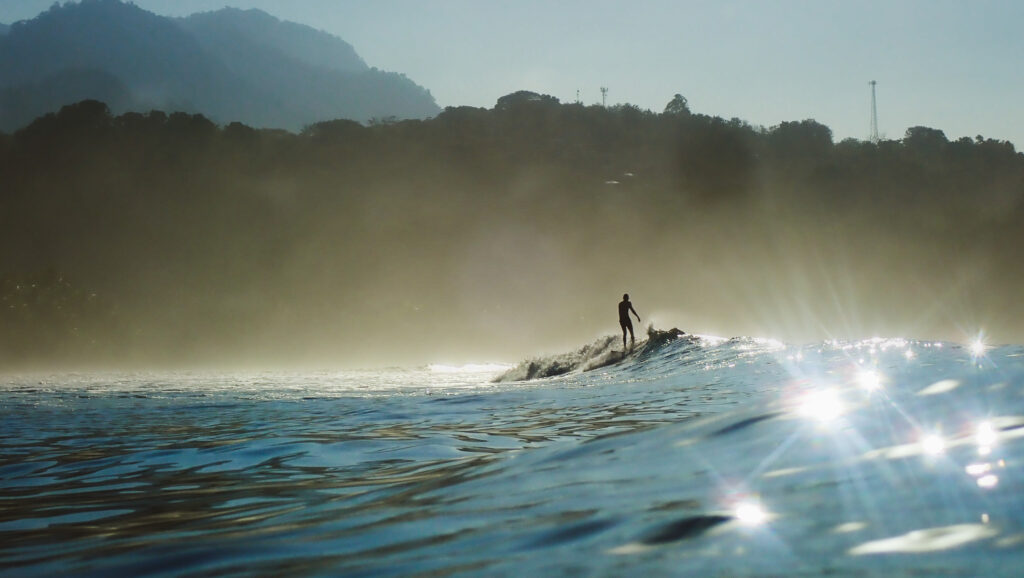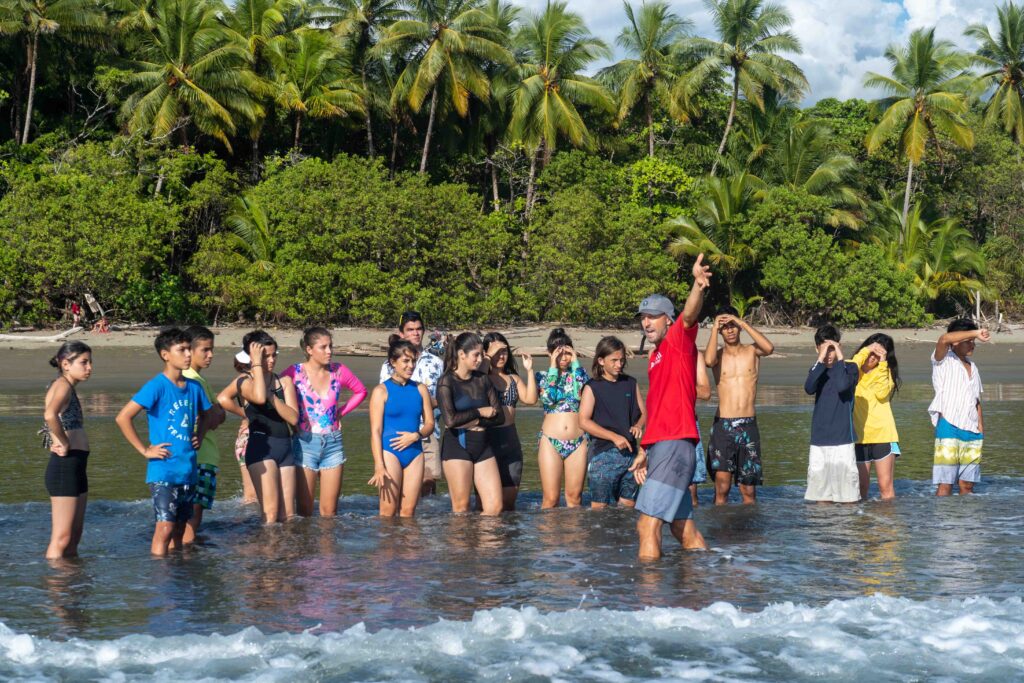What You Need to Know About Zika if Traveling to Costa Rica
In January, 2016, reports of the “new” mosquito-borne Zika virus started making waves around the globe amid speculations that it may be linked to a birth defect called microcephaly as well as the Guillain-Barre Syndrome. In January, the U.S.-based Centre for Disease Control (CDC) issued a Level 2 Travel Alert for regions where Zika is being actively transmitted, and soon thereafter, airlines began to offer individuals traveling to affected areas refunds and/or the ability to change or postpone fights. As scientists, experts, and regional health officials in affected areas have been in a frenzy to contain the situation, there have been many questions raised — especially by those living in or traveling to affected areas.
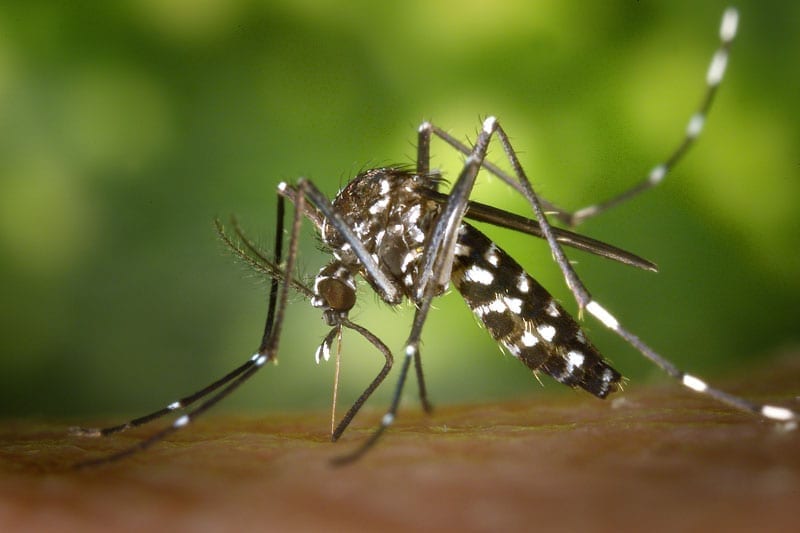
What exactly is Zika?
If you are living in, traveling to, or planning a trip to an at-risk area, there are some things you should know. Zika is a virus spread primarily through the bite of an infected Aedes species mosquito (A. aegypti and A. albopictus) — different from other types in that these mosquitoes typically lay eggs in standing water, and live indoors and outdoors near people — and who are the ones responsible for the spread of Dengue, Chikungunya, and Yellow Fever viruses. These mosquitoes become virus-carriers after biting a person already infected with the virus, and may spread it after biting other people.
As of late February, 2016, the CDC is reporting that Zika virus can be transmitted to people in 4 ways:
- Through the bite of an infected Aedes species mosquito
- From mother to child during pregnancy or near the time of birth (rarely)
- Through sexual contact
- Through infected blood (blood transfusions)
Symptoms of Zika include fever, rash, joint pain, red eyes, headache, and muscle pain. These symptoms are usually mild, and only last several days to one week. There is no vaccine being used to prevent Zika, nor is there a specific medicine to treat its symptoms. If you develop symptoms, it is wise to discuss them with your healthcare provider, get plenty of rest, stay hydrated, and treat pain or fever with acetaminophen. It is not recommended to take aspirin or NSAIDs. And as with all viruses, symptoms are likely to be more severe for the elderly, individuals with chronic illness or who are immunocompromised, and babies.
What are the potential ramifications of the Zika virus?
There has been a lot of discussion regarding the link between Zika and birth defects. Zika can be passed from mother to fetus during pregnancy, but the effects of Zika on developing babies is inconclusive. There is ongoing research regarding any links between Zika and potential birth defects. Until the research results are more clear, the CDC recommends that pregnant women consider postponing travel to areas with Zika, and that all pregnant women or women who are thinking of becoming pregnant should discuss concerns and precautions with their healthcare provider prior to traveling.
Which areas have been impacted by Zika?
Prior to 2015, the Zika virus was found in parts of Africa, Southeast Asia, and the Pacific Islands; however, in May of 2015, the first confirmed Zika virus infections were reported in Brazil, and an alert was put out by the Pan American Health Organization (PAHO). Currently, Zika is being actively transmitted in many countries, with the most cases currently being reported in Brazil, Columbia, Honduras, El Salvador, and Nicaragua.
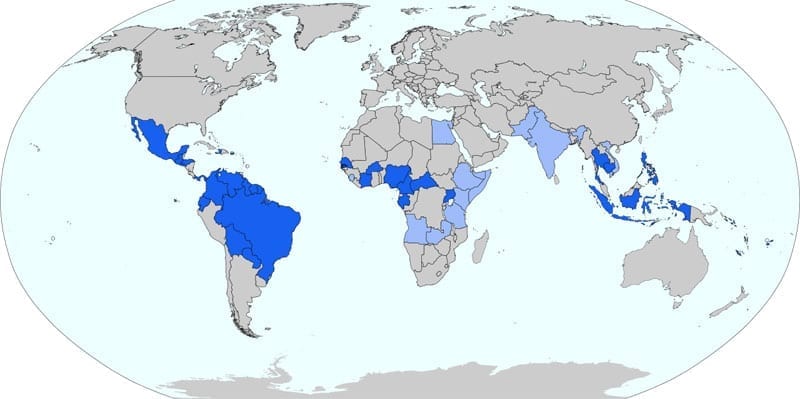
Zika in Costa Rica
As of late February, 2016, there have been two local cases of Zika reported — both on the Nicoya Peninsula, which is on the north west of Costa Rica, near Nicaragua. The country’s health minister has declared a health alert for the Canton of Nicoya, and preventative measures (such as quarantine and fumigation) are being actively taken. Costa Rica, like most of the Central America countries, is currently listed under the CDC’s Travel Alert 2 (Practice Enhanced Precautions).
And if you are traveling to Bahia Ballena…
Here at Bodhi Surf School, we are not too concerned with the Zika virus (just as we have not been too concerned by Yellow Fever, Chikungunya, or Dengue). While it is true that other areas of the country have greater issues with the Aedes mosquito (and the viruses that it spreads), here in Bahia Ballena – Uvita we have been fortunate to see very few cases. There are several factors that may contribute to this: a regional health authority that is very concerned with prevention and the fact that our area is still very pristine and hasn’t had it’s natural balance disturbed — meaning that mosquito-eating creatures like bats, lizards, and spiders help to keep mosquito populations from getting out of hand. However, when traveling to any tropical area, it is advisable to take precautionary measures to avoid getting bitten by mosquitoes in the first place.
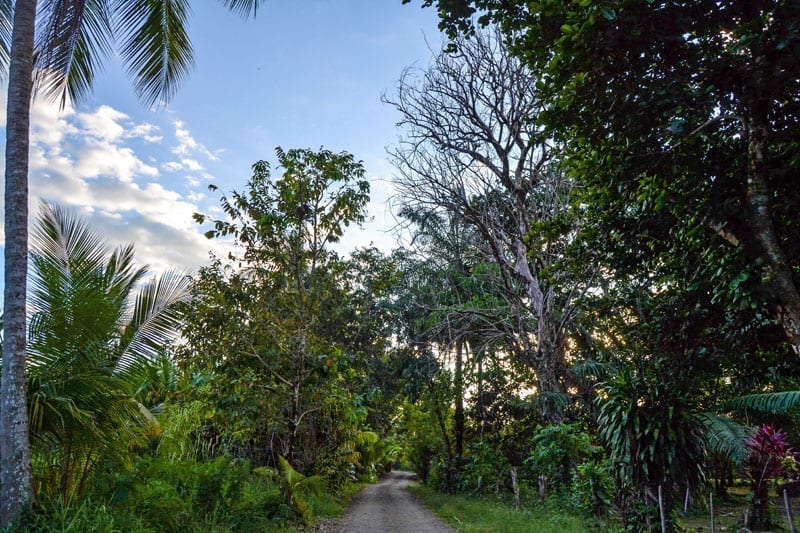
So if you travel to Costa Rica in the near future, we recommend:
- bringing insect repellant, including DEET (which is also available to buy at the stores here in Uvita)
- wearing long sleeves and pants at night
- sleeping in screened-in areas
Finally, as this is a developing situation, it’s prudent to check for recent updates before you travel, as well as to consult your country’s travel recommendations, and your own health care provider. And when in doubt, always trust your instincts!
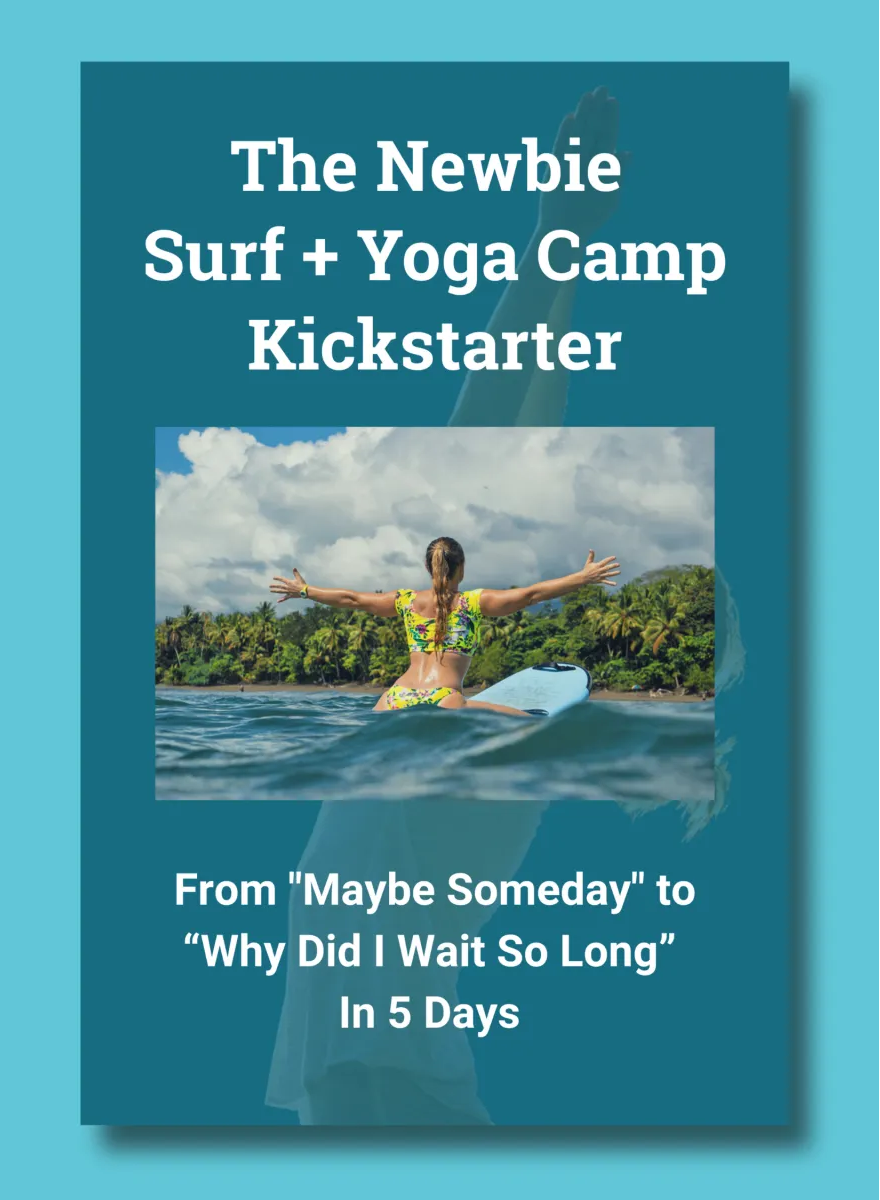
For First-Time Surfers
You Don't Need Experience. You Don't Need Gear. You Just Need This.
Our free 5-day email course that reveals the 5 myths keeping beginners at "I'm not ready" instead of catching their first wave and finding inner peace-and how to overcome them fast.
Change the heading on the Separator tab ->
Search
Change the heading on the Separator tab ->
Most Read Blogs
What is the Meaning of Anjali Mudra?
May 27, 2020
Fitness for Surfers: Workouts, Exercises & Training
February 10, 2022
The Best Places to Eat in Uvita, Costa Rica
May 19, 2022
How to Get From SJO to Costa Ballena, Costa Rica
May 31, 2018
Change the heading on the Separator tab ->
Categories
Categories
- Bodysurfing (5)
- Food (8)
- Responsible Business (7)
- Surfing (68)
- Travel (67)
- Yoga (45)
Change the heading on the Separator tab ->
Newsletter
Thanks for subscribing! Please check your email for further instructions.
Change the heading on the Separator tab ->
Follow Us
Bodhi Surf + Yoga
Change the heading on the Separator tab ->
Read more
Why the Osa Peninsula is the #4 Destination for 2026: A Masterclass in Wellness and Stewardship
Words by Bodhi Surf + Yoga
Recently, the New York Times released its prestigious “52 Places to Go in 2026” list. Sitting proudly at number four globally — and ranking first in all of Latin America — is…
Guest Experience Stories: November & December – Sun, Surf, and Banana Pancakes
Words by George Frost
As the Bodhi Surf + Yoga Guest Experience Manager (it’s me, George!), one thing that I take very seriously is how our guests feel after their time with us. How did we…
How to Give Back on Your Vacation
Words by George Frost
We’re just here to remind you that we DON’T have to feel bad about traveling. If done correctly and intentionally, traveling can be – and is, positive for the people of the…

